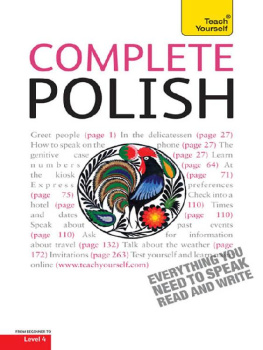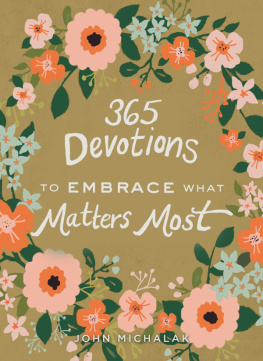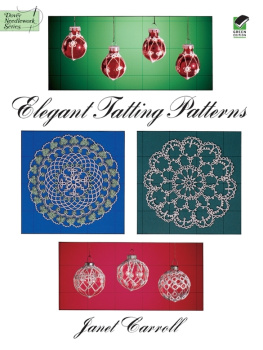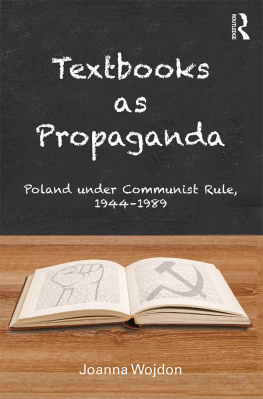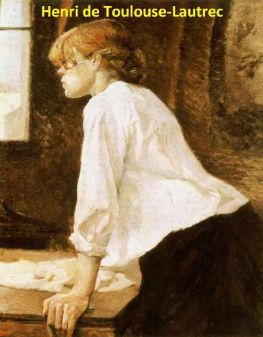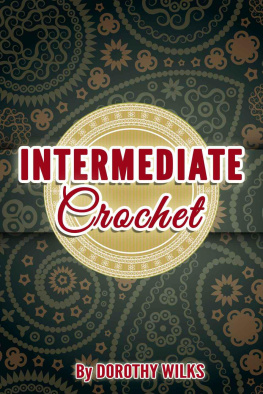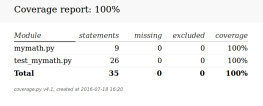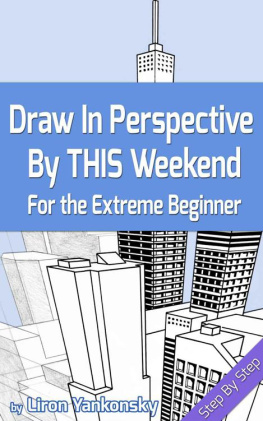Joanna Michalak-Gray - Complete Polish Beginner to Intermediate Course
Here you can read online Joanna Michalak-Gray - Complete Polish Beginner to Intermediate Course full text of the book (entire story) in english for free. Download pdf and epub, get meaning, cover and reviews about this ebook. year: 2011, publisher: Hodder & Stoughton, genre: Children. Description of the work, (preface) as well as reviews are available. Best literature library LitArk.com created for fans of good reading and offers a wide selection of genres:
Romance novel
Science fiction
Adventure
Detective
Science
History
Home and family
Prose
Art
Politics
Computer
Non-fiction
Religion
Business
Children
Humor
Choose a favorite category and find really read worthwhile books. Enjoy immersion in the world of imagination, feel the emotions of the characters or learn something new for yourself, make an fascinating discovery.
- Book:Complete Polish Beginner to Intermediate Course
- Author:
- Publisher:Hodder & Stoughton
- Genre:
- Year:2011
- Rating:4 / 5
- Favourites:Add to favourites
- Your mark:
- 80
- 1
- 2
- 3
- 4
- 5
Complete Polish Beginner to Intermediate Course: summary, description and annotation
We offer to read an annotation, description, summary or preface (depends on what the author of the book "Complete Polish Beginner to Intermediate Course" wrote himself). If you haven't found the necessary information about the book — write in the comments, we will try to find it.
Complete Polish Beginner to Intermediate Course — read online for free the complete book (whole text) full work
Below is the text of the book, divided by pages. System saving the place of the last page read, allows you to conveniently read the book "Complete Polish Beginner to Intermediate Course" online for free, without having to search again every time where you left off. Put a bookmark, and you can go to the page where you finished reading at any time.
Font size:
Interval:
Bookmark:

Nigel Gotteri and
Joanna Michalak-Gray
The authors would like to thank Helen Coward, Helen Hart, Helen Vick, Alexandra Jaton, Kate Jarrett, Sarah Mitchell, Steve Taviner, Rebecca Green and Ginny Catmur for their patience and help in producing earlier editions of this book. They would also like to thank their colleagues, friends and students in England, Poland and Scotland for encouragement and many direct and indirect suggestions. As usual, any flak should nevertheless be directed straight at the authors.
Moim ukochanym Rodzicom i mowi Ianowi powicam. Joanna
Pamici Donalda Pirie powicam. Nigel
Greeting people and answering greetings Introductions Asking for help and thanking people for it
Giving further information about yourself and requesting information from others Talking about nationality Spelling out loud
Counting from 1 to 199 Asking for and giving information Using the telephone Genitive forms
Talking about firm plans Asking for and giving permission Talking about visiting places Attracting and holding attention Offering and accepting apologies
Shopping for food and buying other things like bus and cinema tickets Talking about prices Some accusative forms
Expressing and asking about preferences Expressing likes and dislikes How to accept and decline, graciously and ungraciously
What to do with your money Asking for information about money matters Making enquiries about cost and availability Talking about possibility and necessity
Making a reservation and checking into a hotel Ordering food in a restaurant and asking for a table Addressing groups of men and groups of women Telling the time Talking about past events and about conditions and unreal events
Talking about things due to happen in the future Asking for and giving information about travel More about times and dates Talking about different kinds of condition
Descriptions of people and their routines Expressing condolences Talking about what is or was going to happen and about what is supposed to be the case Talking about helping, favouring, hindering and harming
Talking in more detail about future actions and intentions Talking about possibilities that depend on something Asking and talking about the weather Talking about the ways and circumstances in which things are done
Describing how you feel and asking people how they feel Talking about parts of your body and seeking medical help
Describing family and other relationships Talking about how often things happen
Talking about clothes, sizes and colours Talking about peoples appearance Making comparisons Talking about what things are made of
Talking about months Expressing seasonal and other wishes Issuing invitations and introducing guests Talking about things that your kind of people do Talking about the old days and about namedays, birthdays and other celebrations
How to send for expert help Expressing fears and wishes Telling people not to worry
Talking about travel and about definite plans and engagements Talking about obligations and duties
Talking about past events and about what you have seen and heard Talking about certainty and uncertainty
Making promises Sending greetings and thanking people for specific things Issuing general invitations
Talking about how you liked a place Talking about learning a language Talking about the value of activities and about enjoying activities Paying and receiving compliments
Front cover: Jupiterimages/Comstock/Getty Images
Back cover and pack: Jakub Semeniuk/iStockphoto.com, Royalty-Free/Corbis, agencyby/iStockphoto.com, Andy Cook/iStockphoto.com, Christopher Ewing/iStockphoto.com, zebicho Fotolia.com, Geoffrey Holman/iStockphoto.com, Photodisc/Getty Images, James C. Pruitt/iStockphoto.com, Mohamed Saber Fotolia.com
Pack: Stockbyte/Getty Images
I studied Russian and German at university, where pure chance and a brilliant teacher then introduced me to Polish, which gradually took over. After graduation I had more Polish tuition and spent a year at the Jagiellonian University. Working at Sheffield University from 1972, I taught Polish at all levels, though moving to the Russian and Slavonic Studies Department only in 1988 when my original department was reorganized. Retired from fulltime teaching and research since 2006, and now devoting a great deal of time to music, I am nonetheless still involved in various ways in teaching Polish at Sheffield.
Nigel Gotteri
Im a teacher with almost 30 years experience of teaching foreign languages to students of different backgrounds, ages and abilities both in Poland and in the UK. I taught English as a foreign language for ten years in Poland before moving to Britain. Since 1990 I have been teaching Polish to English-speaking students. Since 1993 I have also worked as a scrutineer of Polish GCSE examinations.
I am co-author of Complete Polish and author of Get Started in Polish and Speak Polish with Confidence, all published by Hodder Education. I also worked as a language consultant for Last-minute Polish by Elisabeth Smith.
Joanna Michalak-Gray
Polish may sometimes be perceived as an obscure language, but remember it is the native language of Nicholas Copernicus, Joseph Conrad, Maria Curie and Frederic Chopin and the adopted language of people like eminent historian Professor Norman Davies and violinist Nigel Kennedy. Its grammar and lexicon reflect the complex history and character of Poland, a place straddling East and West, Latin and Christian, on the one hand, while influenced by the Ottoman Empire, on the other. In the past, Poland was at the crossroads of trade routes, mainly the Amber Route leading from the Baltic Sea to the Mediterranean and linking with the Silk Route. Liberal laws and religious and political tolerance attracted traders and artists from all over Europe and the Middle East, who enriched the Polish language with words of Turkish, Mongolian, Yiddish, Russian, German, Italian and French origin.
Above all, the story of Poland and Polish is a story of survival against heavy odds from the day when Poland ceased to exist on the map of Europe in 1795, partitioned between the three powers of Russia, Prussia and Austro-Hungary, disappearing from the map as a country until after the First World War. Far from being eradicated, though, Polish has been the vehicle of many great works of literature, being internationally acclaimed particularly through four Nobel Prize winners (Henryk Sienkiewicz, Wadysaw Reymont, Czesaw Miosz and Wisawa Szymborska).
Learning Polish is exciting and challenging but ultimately extremely rewarding; it will open and expand your horizons beyond anything you thought possible. With clear rules for getting from spelling to pronunciation, it is a lot friendlier to learners than English or French, too.
It may sound rather surprising, but Polish and English have actually got quite a lot in common. They belong to the same broad family of Indo-European languages, both have been heavily influenced by Latin and Greek, and Polish has adopted a lot of English vocabulary. Words such as muzyka, matematyka, medycyna
Font size:
Interval:
Bookmark:
Similar books «Complete Polish Beginner to Intermediate Course»
Look at similar books to Complete Polish Beginner to Intermediate Course. We have selected literature similar in name and meaning in the hope of providing readers with more options to find new, interesting, not yet read works.
Discussion, reviews of the book Complete Polish Beginner to Intermediate Course and just readers' own opinions. Leave your comments, write what you think about the work, its meaning or the main characters. Specify what exactly you liked and what you didn't like, and why you think so.

